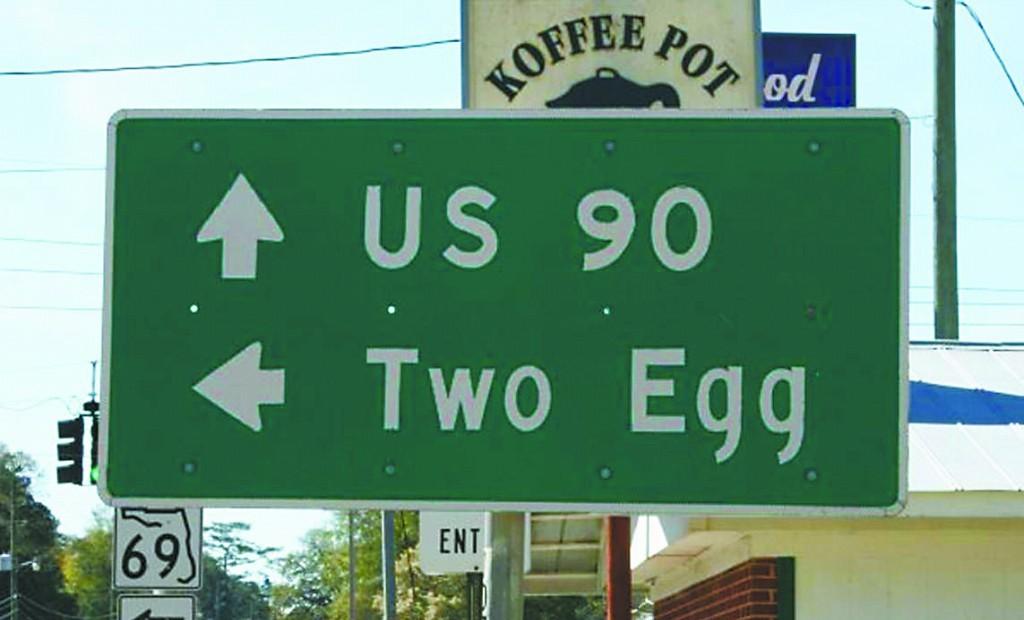Since the rise of the so-called "black life is expensive" movement, movements in various parts of the United States to demand the revision of geographical names on the grounds of "offending black people" or "suspected racial discrimination" have sprung up, and it is said that thousands of large and small place names have been involved. The debate over the modification of geographical names is particularly heated, so who in the United States has the right to propose a change in geographical names? Who has the authority to approve and review?

Many place names in the United States are interesting, "two eggs" town
According to the regulations, the naming process of all public places and national landmarks in the United States is managed by the American Geographical Names Commission established in 1890 under the Federal Department of the Interior, but the proposal for the naming and modification of geographical names is still proposed and approved by the corresponding state and city councilors in the state and city councils, and many states and cities also stipulate that they must be discussed by expert committees or discussed by the public, and these procedures will be submitted to the American Geographical Names Commission after they are completed.
Historically, the pluralistic United States has been "crazy" in changing place names than many countries. For example, the city of Woodfords, California, was renamed eight times in the 22 years after 1847. Texas' "Dublin" is renamed "Dr. Pepper" every June 4-9 as part of the anniversary celebration of the establishment of the first "Dr Pepper Bottling Plant" in the area. Many of the city's roads have also been renamed year after year. The city of Hamilton, Ohio, is the most "anti-heavenly." In 1986, the city's name was renamed "Hamilton!" More than 30 years later, this strange place name that has never been seen before has not brought much benefit to the local area, and it has not been able to win by "surprise".
The above renamed only small cities with a population of a few thousand people. During World War I, the United States changed its name to a state of "national madness", and some large cities were also affected. Angered by Germany's unrestricted submarine warfare and "hating the house and the U.S.", Rep. Smith of Michigan proposed an unprecedented bill: to change the names of places containing the words "Germany" and "Berlin" to "victory" and "freedom" to give Germany an emotional "fatal blow". The spirited New York Times also joined in the fun, and on June 2, 1918, the bill and related conditions were rendered under the title of "Striking Germany from the Map of the United States". Although the bill was not passed, several cities were moved. More than 60 cities in the United States have completed the toponymic conversion almost overnight. Even after the war, the wave of name changes could not be stopped.
"Boring" town
The problems of the frenzied rebranding soon became apparent. In the Great Lakes region, where Germans are more concentrated, the change of place names has bothered the locals, and they "can't find the north" in their hometown where they have lived for many years. Even more tragically, the names of places that had been painstakingly changed were restored to their original state immediately after the war. This blind toss makes Americans realize their absurdity and superficiality.
In light of this, Americans became irrational about changing place names during World War II. Americans believe that the name change with political purposes is generally a manifestation of manic sentiment and an externalization of a lack of self-confidence. A place name, in the final analysis, is just a symbol, does not have such a great power function, and does not carry much mission. The emotional change of name, which is not conducive to the early arrival of peace in times of war, adds more hatred; in peacetime, it does not help to improve the well-being of the citizens, but adds more trouble. During World War II, when Americans generally hated Japan and a few people wanted to change the names of Places like Tokyo, the postmaster general of Tokyo, Texas, profoundly pointed out: "Those who are eager to change their names have never seriously considered such a problem -- the purpose of our war is not to change our Tokyo, but to change another Tokyo."
After World War II, the speed of name change in the United States was significantly reduced, which also had something to do with the increased difficulty of revision: it was necessary to specify the reasons for the abandonment of the current geographical name in the application form submitted, and to provide a replacement name that could not be duplicated with the nearby place name, let alone pejorative to race, ethnicity, gender, etc. Ordinary people and institutions are simply unable to implement it in the short term. The larger name change was the neutralization of thousands of insulting place names in the United States in the 1960s and 1990s, such as the change of "nigger" to "black", "Japanese", and "Indian prostitute" to "Japanese" and various neutral terms related to Indian women, respectively.
Since 2020, some parliamentarians have been proposing the Toponymic Reconciliation Act in an attempt to amend all "offensive" geographical names as soon as possible by setting up special committees and streamlining the process. Opponents argue that the move will give the minority the opportunity to "hijack the opinion of the majority", causing many place names to be frequently changed and leaving ordinary people confused.